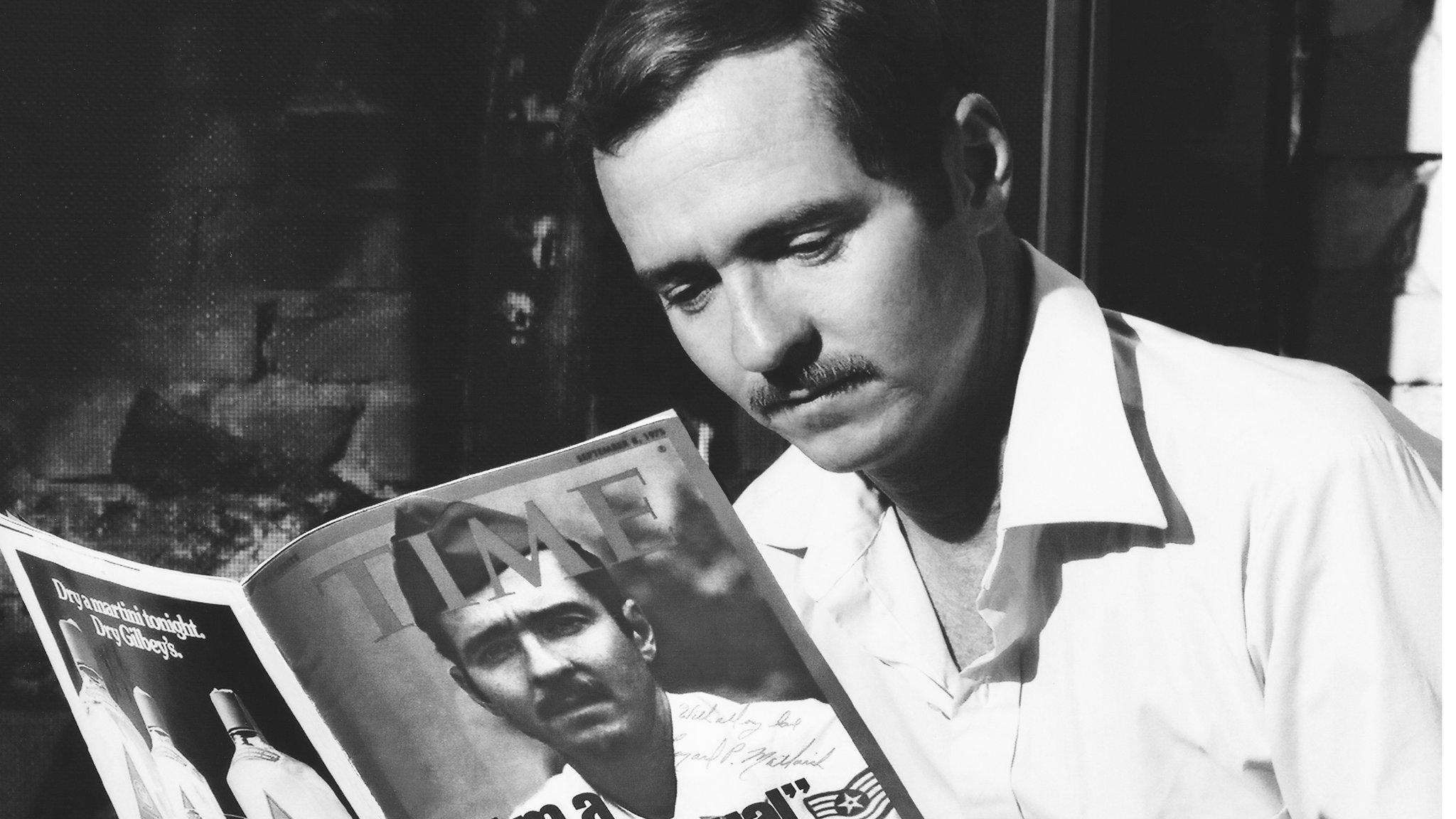How the Supreme Court non-decided gay marriage
- Published
- comments
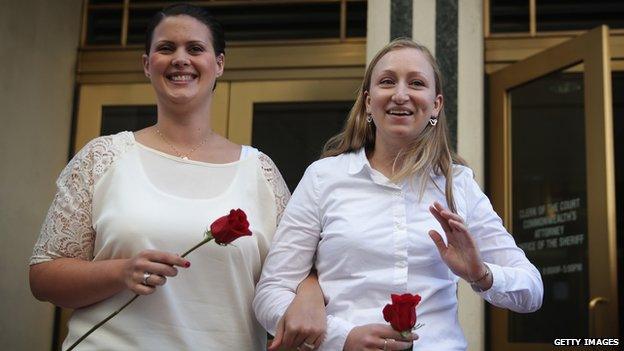
The US Supreme Court opens the door to gay marriages in Virginia and 10 other states
The Supreme Court decision not to consider any of the seven pending gay marriage cases on Monday morning came as an unexpected jolt to supporters on both sides of the issue.
After the initial surprise had worn off, however, the perceived logic behind the court's decision emerged.
The court justices didn't get involved because they didn't have to. All of the lower court decisions so far have pointed in one direction - towards endorsing constitutionally protected right for same-sex couples to marry.
If there had been a split between the appellate courts - where gay marriage bans were upheld in some regions and struck down in others - the justices likely would have felt compelled to act. Resolving lower-court disagreements is one of the Supreme Court's central tasks.
Moreover, the court justices didn't get involved because they didn't want to. They still could have decided to hear the case even without a lower-court difference of opinion. The bottom line is at least six of the nine justices decided to ignore the calls of activists on both sides and let inaction be their action.
The non-decision prompted howls of outrage from gay-marriage ban supporters, including Republican Senator Ted Cruz from Texas.
"This is judicial activism at its worst," he said in a statement, external. "The Constitution entrusts state legislatures, elected by the people, to define marriage consistent with the values and mores of their citizens. Unelected judges should not be imposing their policy preferences to subvert the considered judgments of democratically elected legislatures."
Others expressed shock that the court would take a pass on such a high-profile legal issue.
"It's mind-boggling that lower court judges would be allowed to impose the redefinition of marriage in these states, and our highest court would have nothing to say about it," writes, external National Organization for Marriage president Brian S Brown on his group's blog.
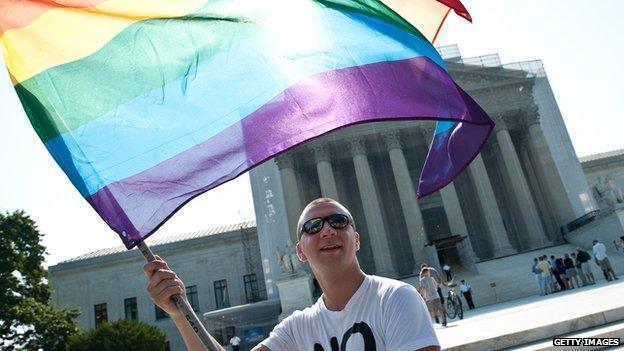
Matthew J Franck, writing for the National Review, says, external the court's action displays "a deep disrespect for the rule of law, for the Constitution and for the people's right of self-government".
"Do the people in the five states whose petitions were denied today have no right even to have their arguments heard?" he asks, calling the lower-court decisions "rhetorical twaddle" that doesn't clarify the issue.
"What is the ground of the right to same-sex marriage?"he asks "Is it the equal protection clause (as the Seventh Circuit seems to believe)? Or the due process clause (which the Fourth appears to lean toward)? Or some penumbras-from-emanations 'fundamental right' that partakes equally of both (which seems to be the view of the Tenth)? Who knows?
Many on the left mocked Mr Cruz's "judicial activism" line.
"For those scoring at home, 'judicial activism' is when a court issues a ruling you don't like," writes, external the Washington Post's Paul Waldman.
Others celebrated the non-decision decision, which adds 11 more states to the 19 that already allow same-sex marriages.
"What we have right now in America is the moral majority for the dignity of every person's capacity to love and be loved," writes, external blogger Andrew Sullivan, a long-time advocate of gay marriage. "What we have right now is the defeat of fear and fundamentalism - the two most dangerous sirens of our time."
Sullivan goes on to praise the court's "extraordinary decision" for allowing the change to come from a groundswell of support and not by judicial fiat:
"Marriage equality will not have been prematurely foisted on the country by one single decision; it will have emerged and taken root because it slowly gained democratic legitimacy, from state to state, because the legal and constitutional arguments slowly won in the court of public opinion, and because an experiment in one state, Massachusetts, and then others, helped persuade the sincere sceptics that the consequences were, in fact, the strengthening of families, not their weakening."
Other liberals weren't so happy with the half-finished nature of the court's action, leaving marriage bans in place in areas where appellate courts have yet to rule - and may, in fact, uphold them.
"This is a happy moment in time, to be sure, but not a great turning point in the history of American jurisprudence," writes, external Jamie Stiehm in US News & World Report. "The court did not speak, as it has in other sweeping social questions facing it, such as school desegregation and voting rights."
Slate's Dahlia Lithwick calls, external the decision a "big win" that was achieved "in a small way, and possibly for very wrong reasons".
When the court ruled abortion was a legal right in Roe v Wade, she writes, it set off a fierce public debate that has yet to die down more than 40 years later. Could the Roe legacy be casting a dark shadow over the court's gay marriage considerations, making the justices afraid to get ahead of public sentiment?
"This whole conversation around the instant of national readiness for same-sex marriage strikes me as unseemly," Lithwick writes. "For the court to imagine that there will be an ideal moment, next month or in January, when it believes the nation is fully ready to accede to gay marriage, suggests that the court isn't merely aware of public opinion, but hostage to it."
Some actions, however - even limited ones- are difficult to reverse. You can't unsqueeze a tube of toothpaste, as the saying goes.
That is the reality of the court's action. Today more states are allowing gay marriage than they were on Sunday. And the longer these marriages are allowed to take place, the harder it will be for the court to roll back.
The Atlantic's Garret Epps says, external he refuses to believe that the court will "allow thousands of couples nationwide to celebrate marriages, change names, jointly adopt children, become legally one family - and then, in an opinion later in the term, baldly announce that their marriages are in jeopardy or even void".
Moreover, he says, any subsequent appeals court considering gay-marriage challenges will face a "huge weight of federal authority" from existing court rulings and the Supreme Court's decision to let them stand.
This, then, could be how the battle for gay marriage in the US is finally resolved. Not with a bang, but with a whisper.
- Published23 May 2014
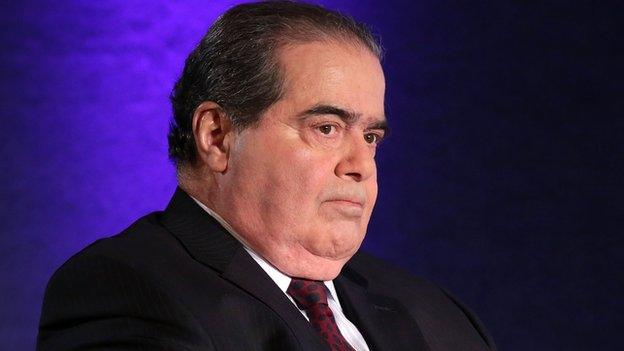
- Published26 June 2015
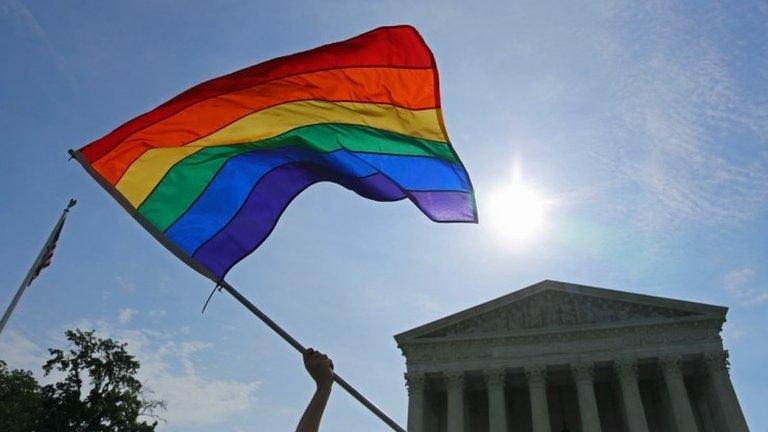
- Published25 March 2013
